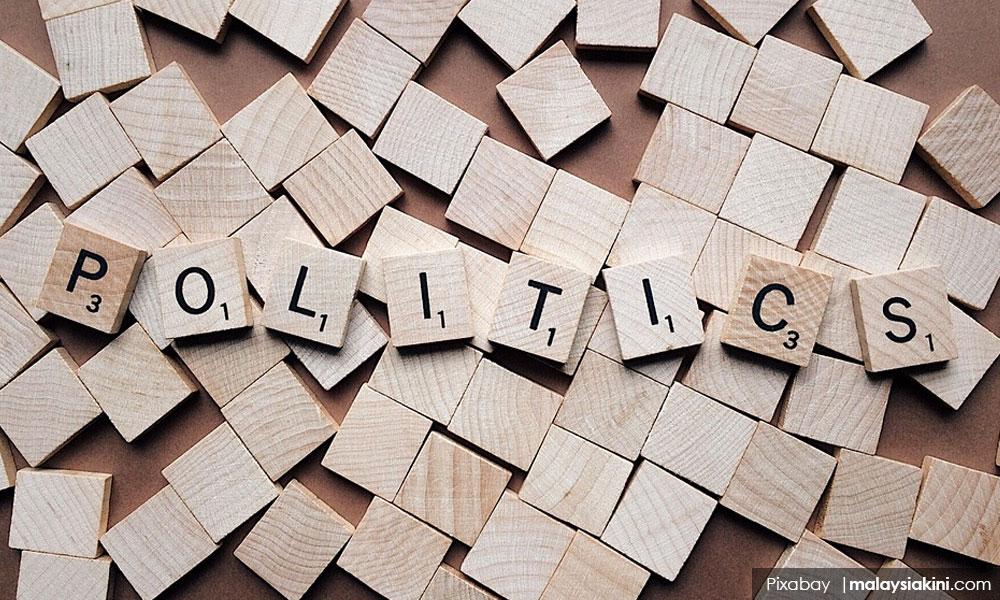It was in the early 20th century that Norwegian zoologist Thorleif Schjelderup-Ebbe coined the word “pecking order” while observing the social behaviour of chickens.
He noticed that within a group of chickens, there was a hierarchical structure where each chicken knew its place in the social order, where dominant individuals had priority access to resources and could assert their dominance over subordinate individuals through behaviours like pecking.
I realised that there was a similar pecking order among my ducks and the otters that frequent the river and mangroves near my home.
What about my working colleagues? Surely with our distinctly superior cognitive abilities and cultural practices, this cannot be a human trait as well.
Why am I not surprised to see that the meetings I attend also have a pecking order? People just knew where to sit without being told.
Your power was literally measured from your distance to the chairperson. The pecking order was instinctive, and everyone knew never to be fooled by the emcee who asked that the front rows needed to be filled up first.

Often, the first sign of a change in political structure was seen in a change in the board meeting pecking order.
Besides meetings, motivational workshops were the bane of my previous life as a working academician. These were run by equally motivated speakers. They all had a similar mantra: “There is no ‘I’ in team. We are all equals. Just doing different equally important jobs”.
So they said. They could be right because a quintessential aspect of civilisation is to forego superiority and to promote equality, to forget individualism and to participate in teamwork.
However, therein lies the problem. To manage such a civilised world, one needs leaders, movers and shakers. The minute one needs a hierarchy then status and competitiveness are back into the equation, and that is when politics gets involved.
The tall poppy syndrome
In the world of chickens, ducks, and even humans, the politics of the pecking order is all about who is on top and who is below. It is like a social ladder where everyone is trying to climb up for better access to food, money and respect.
This means lots of showing off, some squabbles, and everyone knowing their place in order to keep things running smoothly, which is why no one likes the tall poppies.
In 1984, I was a postgraduate student in Australia when Susan Mitchell interviewed nine successful Australian women in her best-selling book “Tall Poppies” and revived the phrase “tall poppy syndrome”. The term originates from the metaphor of a field of poppies, where the tallest poppies are seen as standing out from the rest and are chopped down to maintain uniformity.
Instead of being celebrated, they are criticised or cut down by others. In Japan, a similar common expression is “the nail that sticks up gets hammered down” while in the Netherlands, this expression is “don’t put your head above ground level”.
It is a cultural thing where success or fame can make some people uncomfortable, so they try to bring high achievers back down to earth.
In maintaining the politics of the pecking order, we often encourage uniformity and mediocrity which can contribute to systemic racism if it disproportionately reflects the experiences of the dominant group and marginalise those who do not identify with these norms.

Are animals racist?
Additionally, efforts to resist or challenge racist ideologies may be met with resistance or hostility, further perpetuating a culture of conformity and stifling diversity and innovation.
In the animal world, if you look “weird” then you are going to be, in general, less successful. Uniformity, especially symmetry, is the key to animal success in stable environments.
If you are too big or too small, if you are the wrong colour, if you make the wrong noise, if you smell bad, then you are in trouble. Does it mean that animals are racist too?
Take a look at dolphins. Humans love dolphins. What is there not to love? They have appeared in Disney movies, they seem friendly, look like they are always smiling and appear intelligent.
Yet, there is a sinister side to all this cuteness. Dolphins will attack and even kill dolphins of other species, even babies. No wonder some humans get along so well with them.
Even chimpanzees are capable of killing, torture and genocide.
Indeed, the idea of chimp genocide may sound strange, but they are one of only three groups that have been observed to be capable of wiping out entire social groups. The other two are wolves and humans.
Such is the effect of intelligence and having a bigger brain.

There have been reports from dog owners that their dogs showed negative attitudes toward specific groups of people and a cognitive laboratory in France decided to investigate what seemed to be racism in dogs.
What they discovered was that the dogs were “socially referencing” their owners. They read the behaviours of others to determine how they would respond to a situation, person, or object.
It was the owners who were racist, not the dogs.
Looking for a scapegoat
Taking the animal analogy a bit further, I realise that the default position of the “pecking order politician” is to deny respect to others and to find a scapegoat.
The scapegoat is an interesting animal. In ancient Jewish rituals, on the Day of Atonement, a goat would be symbolically burdened with the sins of the community and then driven into the wilderness, thus carrying away the sins of the people.
Over time, the term “scapegoat” evolved to refer to someone who is unfairly blamed or made to bear the consequences of the actions of others.
Again and again, we are witnessing how the pecking order politician, having no positive message, utilises the scapegoat in an attempt to garner the votes of a majority by consigning entire ethnic minorities to the bottom of the barrel.
Racism is a complex social phenomenon rooted in human culture, history, and psychology. While some animals may exhibit behaviours that resemble prejudice or discrimination towards individuals from other groups, these behaviours are typically driven by factors such as competition for resources or territory, rather than the complex social constructs that underpin human racism.
Additionally, human racism often involves systemic and institutionalised discrimination, which is not observed in the behaviour of animals. Race is a social construct. It exists only in the human mind.

Surely as human beings, we can be so much better than chickens and ducks. We can, if we allow ourselves the opportunity, see things from other people's perspectives.
This is almost certainly a trait only a few animals on earth are capable of showing and the only one who can do it with any real consistency is a human being.
Putting aside the chickens and goats, dolphins and chimpanzees, how do I know if my representative has attained political maturity or remains as a “pecking order politician”?
He or she needs to reduce the chance of discrimination by demonstrating four principles that guide democratic governance: inclusivity, respect for diverse perspectives, constructive dialogue, and a commitment to finding common ground or solutions.
His or her decisions should be well-organised, transparent and focused on addressing issues or making decisions in the best interest of the country. I can think of many politicians who meet my criteria and a lot more who don’t. What about you? - Mkini
DR ZALINA ISMAIL is a former professor in Neurophysiology at the School of Health Sciences, Universiti Sains Malaysia, as well as a fellow of the Foundation for Advancement of International Medical Education and Research.
The views expressed here are those of the author/contributor and do not necessarily represent the views of MMKtT.




No comments:
Post a Comment
Note: Only a member of this blog may post a comment.